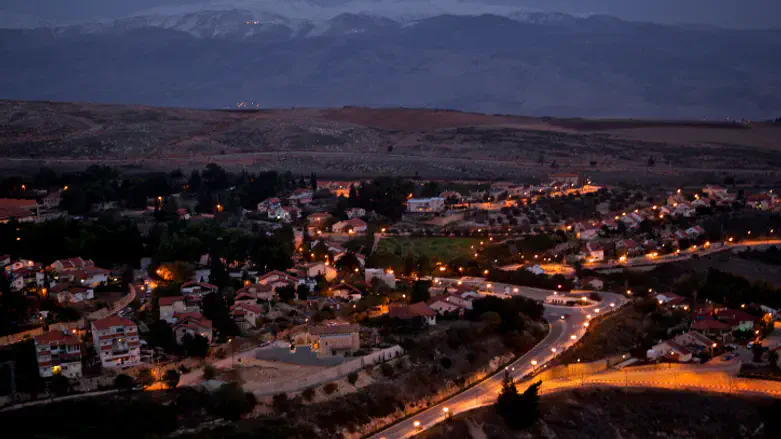
Battered but not broken, Metula, the northernmost town in Israel, opposite the Lebanese border, has become a symbol of the enduring resilience and strength of Israel and its People
Metula has become for many the embodiment of the vulnerability of Israel’s northern communities. A beautiful and historic village, Metula stands at the tip of the upraised finger that is the Upper Galilee.
It is akin to a peninsula, surrounded by Lebanon in all directions except from its southern entrance.
This morning I decided to attempt to visit. I say ”attempt” because until the current ceasefire, Metula, with its lovely villas and gardens, had been designated a closed military site. Several months ago, before that severe designation. I had driven to the gated entrance, only to be turned away by soldiers.
Today was much easier. There were a few cars entering, greeted by two civil guard members of retirement age. When it was my turn. I waved, they waved back, and I had entered.
There have been stories of widespread damage to houses, so I had steeled myself for a distressing visit. Thankfully, I was pleasantly surprised. The south facing part of the village looked virtually untouched, though also virtually unoccupied.
The fields surrounding the houses were cared for and well tended. This was a testament to the dedication and tenacity of the long-time farmers of Metula, who, while having relocated with their families, returned as needed to tend to their fields.
(This heroic posture has proved to be hazardous, as at least three farmers that I am aware of were killed when rockets fell in “open areas:” the fields that they were working in.)
The commercial center of town did not look nearly as good. While there was little in the way of damage to buildings, the streets were ragged, very likely reflecting the wear and tear of having heavy military vehicles treading through the town.
As I suspected and feared, the north facing part of town did not fare nearly as well. I did not have to stop my car to see the widespread damage to neighboring homes, and again the damage to the streets.
Frankly, given the clear line of sight from the adjoining Lebanese villages that begin immediately past the border, I was relieved that the damage was not more widespread.
A very encouraging sight was the many bulldozers and other equipment that were busily engaged in infrastructure repair work. In addition, the center of town was being worked on, even as soldiers still congregated at the famous Canada Center hockey rink, the pride and joy of the town, which is now a base.
Accessing an overlook point on a “scenic security road” gave the proverbial picture that is worth 1000 words. Metula is indeed vulnerable, surrounded and beset. It is also beautiful and self-possessed.
As I drove, unimpeded and with very little company, I was struck by the incongruity of what I was seeing. Metula has absorbed frequent and fearsome blows. The population has been evacuated. Yet it is still very much in the game. There is renovation work going on, and I suspect most residents are eager to return.
It occurred to me that Metula is a microcosm of Israel itself: historic, beautiful, with tough resilient people. The sense that one has gotten from news reports, inevitably perhaps, is of a place that is down for the count, a place that will be hard pressed to return to a semblance of its former self.
Not true. Of course, Metula is subject to the winds of war and in that sense is hardly in control of its own destiny. The same can be said about any place in Israel, and for the country itself in some many respects.
But Metula knows that it is the uppermost border of Israel. It knows what surrounds it. It also knows that it is a place of strength, toughness, endurance and great resilience.
I left Metula on a high, optimistic not only for the prospects of this very special place, but also for the very special place that is the State of Israel.
The two guards who waved me through had it just right: come on in, we’re still here, we’re managing, and no one is going anywhere.
Sound familiar? This is Israel itself, and it is worth marveling at, and even more importantly, cherishing and defending.
Douglas Altabef is the Chairman of the Board of Im Tirtzu and a Director of the Israel Independence Fund.